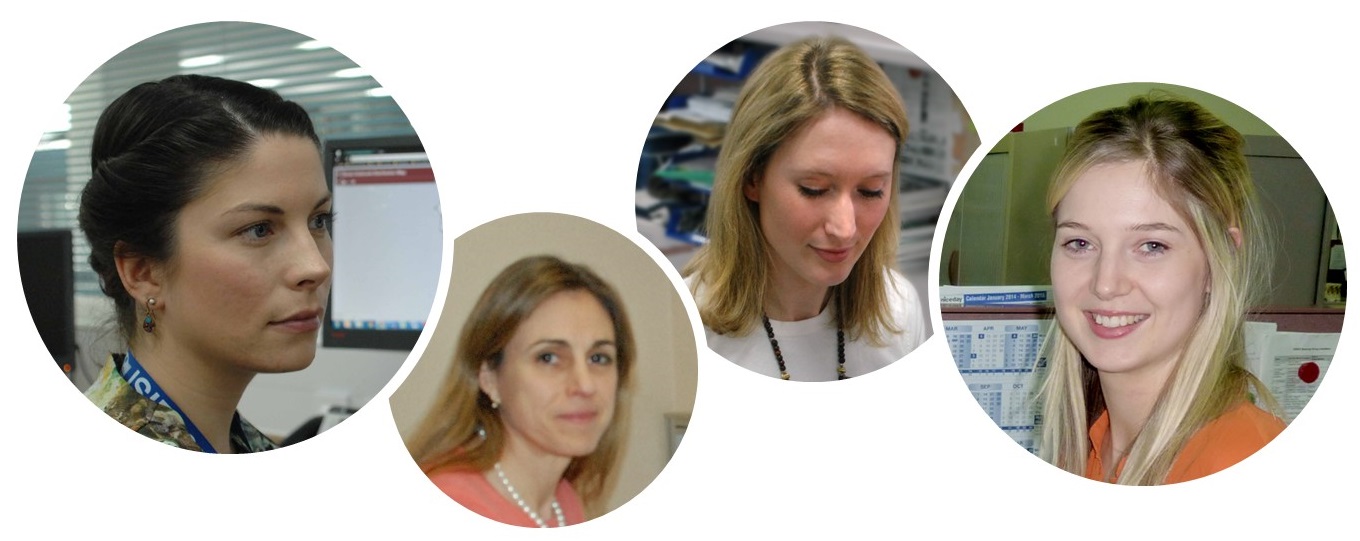
For International Women’s Day, we’re blogging in support of the Department for Work and Pensions Not Just for Boys campaign.
The campaign is all about choice - supporting and inspiring women to make decisions that are right for them – and dispelling any myths that professions where women are under-represented, such as science, are more suited to men.
In this blog we introduce four female scientists whose work pits them against public health threats from flooding or flu to Ebola and anthrax.
All are involved in epidemiology, the science that studies the patterns, causes, and effects of health and disease conditions in defined populations. It is the cornerstone of public health, and informs policy decisions and evidence-based practice by identifying risk factors for disease and targets for preventive healthcare.
Over the next few months this blog will feature other scientists from across PHE, including microbiologists, public health consultants and environmental scientists.

Isabel Oliver- Field epidemiology
“If you think science is nerdy, or that you work in isolation, think again”
“Working with other people, particularly new enthusiastic scientists, keeps you active and dynamic” says Isabel, one of PHE’s most senior scientists with previous roles including helping to lead the public health response to emergencies from Ebola and pandemic flu to severe flooding.
“Realising you can use scientific methods to improve people’s lives, or discover new information that can prevent ill health is very rewarding. If you can identify new information or new risk factors you are informing decisions...even informing the actions of Government.”
“Working on a health emergency like Ebola can be very intense with a lot of public interest and the scientific advice we develop is put into practice very quickly. It’s exciting as you can see you are making a difference and helping people.”
“It’s great to see more women moving into scientific roles. For anyone considering these careers, if you think science is nerdy or that you work in isolation, think again. Epidemiology is a very interesting area – it’s teamwork, lots of action, responding to new things all the time – there’s never a moment to be bored.”

Cat O’Connor - Epidemic intelligence
“My first science teacher told me; you should always ask why”
“I’ve always been obsessed with animals but as I grew up I realised that I wanted to work on the interface between animal and human health” says Cat, a scientist studying illnesses such as Ebola, anthrax and rabies in PHE’s Emerging Infections and Zoonosis team. “I initially specialised in microbiology then later epidemiology, basically making the move from studying the petri dish to studying whole populations.”
“Trying to understand bacteria and viruses is a fascinating area; discovering why certain new diseases emerge, working out how diseases transmit across populations and who is most at risk, and then deciding what we can do to protect them.”
“When I talk to young people about science as a career I think back to my first science teacher who told me ‘you should always ask why’. If they constantly find themselves asking ‘why’ then science could be the career for them. I think some younger girls worry that science is just about maths and statistics and feel intimidated, but I reassure them that there are so many different fields of science – there really is something for everyone.“

Nicki Boddington – Flu surveillance
“My lightbulb moment was an undergraduate lecture on public health policy”
“At school and university if you’re keen on health and science people often suggest you go into medicine” says Nicki, a senior scientist specialising in influenza surveillance. “My light bulb moment was an undergraduate lecture on public health policy which showed me that there were many interesting roles out there, not just in front line healthcare. “
“I now collect and collate data from a wide range of sources in order to study trends in flu and other respiratory viruses, so we can understand the impact and severity on the population. This could be seasonal flu or monitoring for emerging threats like pandemic flu or MERS-CoV”
“I don’t see public health as a male dominated profession and there are successful men and women. For me the benefit of this career is being able to work at the interface between academia, clinical and policy work and that your work can inform national decisions and policy.”
“Next for me is completing the Doctorate in Public Health at LSHTM and I’m also interested in working on global health projects in future. I would definitely recommend this career to other young scientists.”

Gemma Smith - Travel and migrant health
“I really enjoy the diversity of the role and the mix between immediate reactive work and longer term research”
Gemma began her science career as an undergraduate biomedical science student but went on to specialise in the biology and control of parasites and disease vectors at masters level then further PhD study in migrant health. “I've always been interested in science and after initially focussing on lab based study I became interested in population and public health, particularly health inequalities.”
“At Public Health England I contribute towards providing evidence-based advice for GPs and other primary care practitioners on health issues they need to be aware of in relation to migrants in the UK. This ranges from TB to nutritional concerns and entitlements to health care. I also help to coordinate and communicate information to and from the World Health Organisation, ensuring updates about significant public health events are shared with the relevant organisations and individuals.”
“I really enjoy the diversity of the role and the mix between immediate reactive work and longer term research. This could be focussing on an outbreak of disease somewhere in the world that needs immediate attention on that day or a project looking at building the evidence-base in relation to migrant health.”
Find out more about public health careers and training from the Faculty of Public Health. Information about jobs and careers at PHE is available on GOV.UK.
